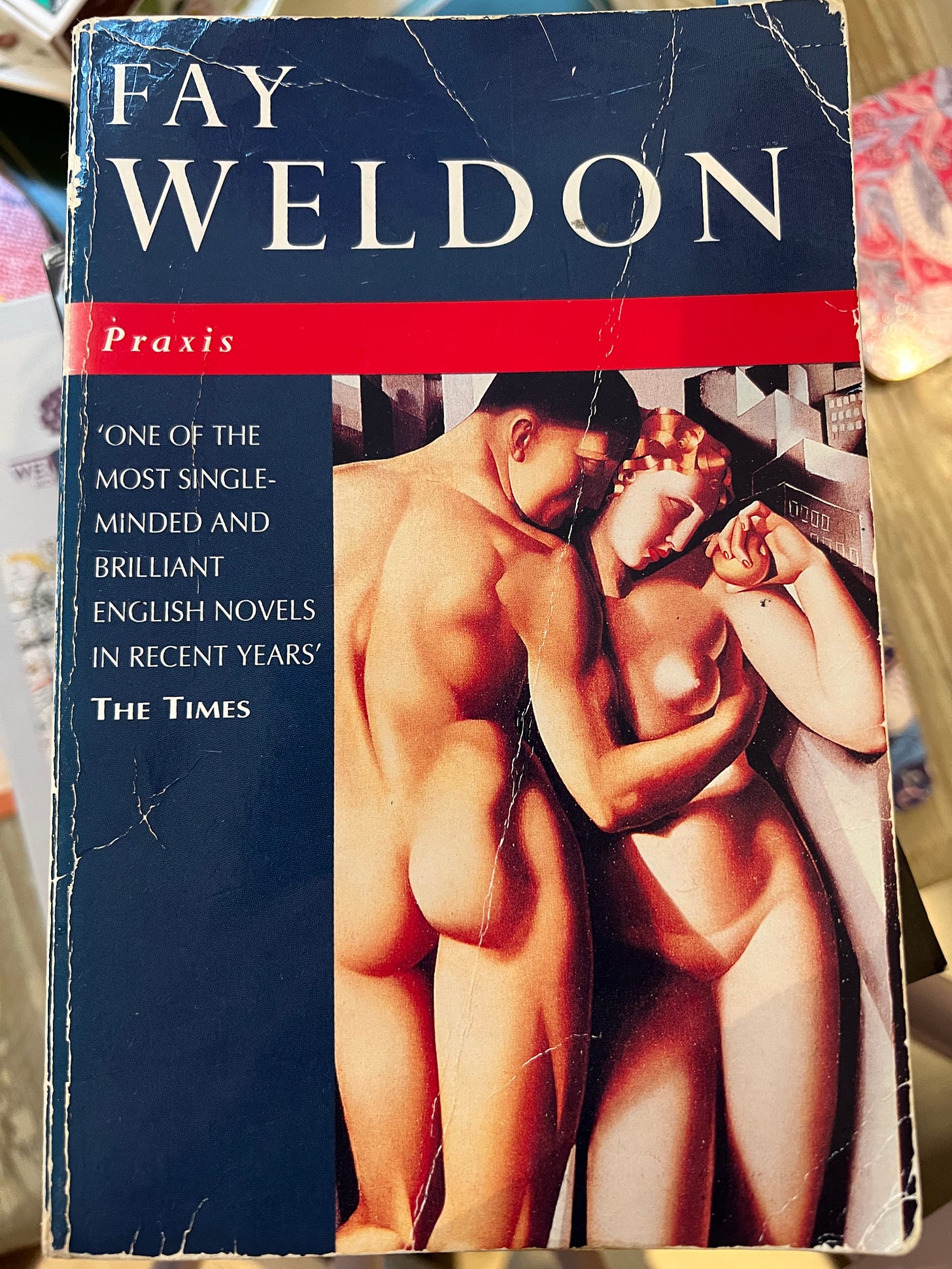Hello – and Fay Weldon’s Praxis (1978)
A second-wave wonder
If, somehow, you have stumbled across this page, hello!
I’m a writer – a playwright – and you can read about some of the things I’ve done at my Writers’ Guild profile page.
Every Sunday morning I endeavour to share my thoughts on a twentieth-century novel.
It’s usually by a British or Australian writer, perhaps not particularly well-known, and often by a woman. I also ramble into other literary and theatrical areas. Subscribe with your email address to get my newsletters delivered directly to your inbox. It’s free.
This week: Fay Weldon’s Praxis, shortlisted for the Booker Prize in 1979.
Human lives travel through time like the waves of the sea, rising to peaks of experience, falling again, gathering new strength, to rise once more. There is no finite point at which we can say, ah, I have arrived: I am saved: I am rich, successful, happy. We wake the next morning and see that we are not. 1
I’m glad I knew nothing in advance about this novel, which I think is out of print – unjustly. It’s a twentieth-century picaresque (I thought occasionally of Moll Flanders) with an idiosyncratic central character who seems so much a product of her times that her story doesn’t always make for comfortable reading in 2023.
But it can’t have made for comfortable reading in 1978 either – and 2023 can’t claim the moral high ground over 1978, can it? The book’s greatest strength is its moral ambivalence.
It’s about the changing state of womanhood, and its feminism pivots on something vexed. Its prose is matter-of-fact, sometimes abrasive; I never knew what was coming next; and I found it exciting, bizarre, depressing, galvanising, distressing, invigorating, historically and culturally illuminating, bitterly funny and genuinely shocking.
Fay Weldon, Praxis (London: Hodder and Stoughton, 1978; repr. 1980), p. 275.


